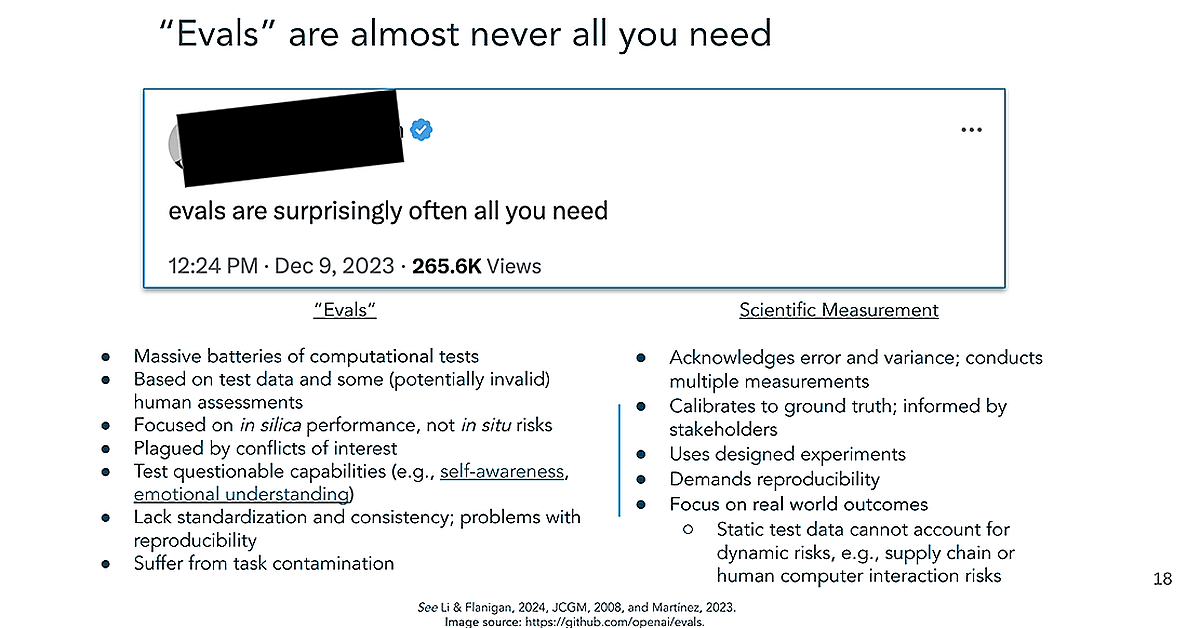Evals Are Almost Never All You Need
Hosted by Patrick Hall
In this video
What you'll learn
Common problems with benchmarks and evals
What to do instead of benchmarks and evals
When to use benchmarks and evals
Why this topic matters
You'll learn from
Patrick Hall
Principal Scientist, HallResearch.ai
Patrick Hall is principal scientist at Hall Research. He is also teaching faculty at the George Washington University (GWU) School of Business, offering data ethics, business analytics, and machine learning classes to graduate and undergraduate students. Patrick conducts research in support of NIST's AI Risk Management Framework, works with leading fair lending and AI risk management advisory firms, and serves on the board of directors for the AI Incident Database.
Prior to co-founding Hall Research, Patrick was a founding partner at BNH.AI, where he pioneered the emergent discipline of auditing and red-teaming generative AI systems; he also led H2O.ai's efforts in the development of responsible AI products, resulting in one of the world's first commercial applications for explainability and bias management in machine learning.
Patrick has been invited to speak on AI and machine learning topics at the National Academies, the Association for Computing Machinery SIG-KDD Conference ("KDD"), and the American Statistical Association Joint Statistical Meetings. His expertise has been sought in the New York Times and NPR, he has been published in outlets like Information, Frontiers in AI, McKinsey.com, O'Reilly Media, and Thomson Reuters Regulatory Intelligence, and his technical work has been profiled in Fortune, WIRED, InfoWorld, TechCrunch, and others. Patrick is the lead author of the book Machine Learning for High-Risk Applications.
Go deeper with a course


